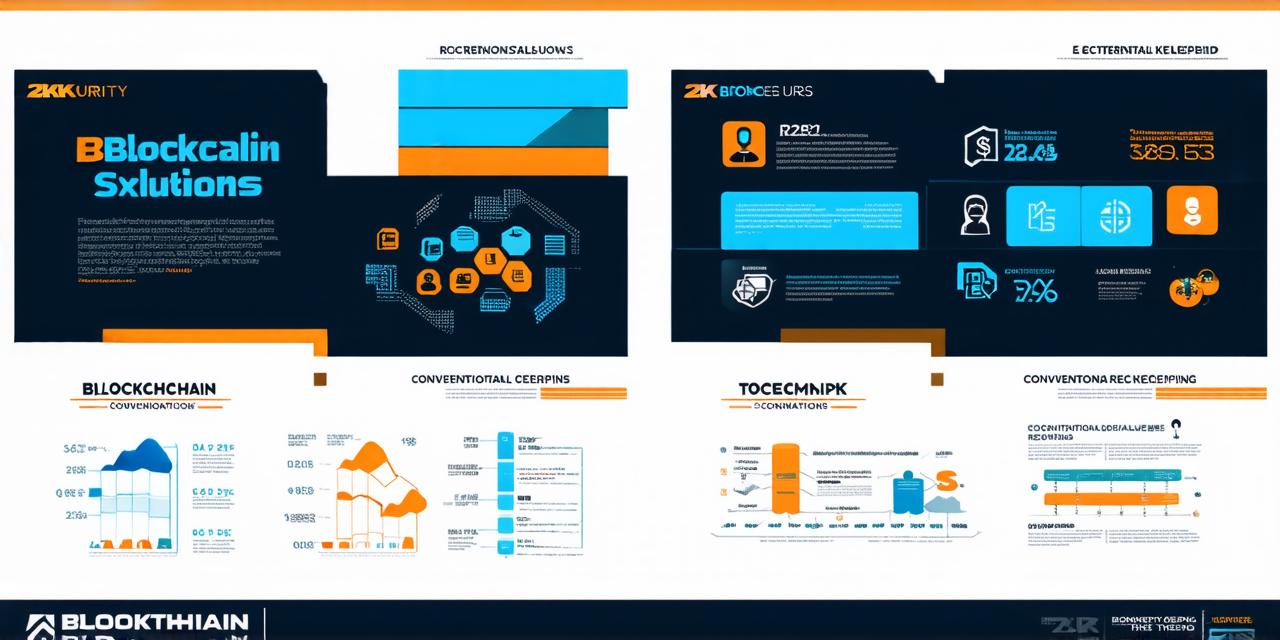
Blockchain technology has been gaining widespread attention for its ability to revolutionize record-keeping solutions.
Introduction
Blockchain technology is an open-source, decentralized digital ledger that enables secure and transparent sharing of data among a distributed network of users. It was first introduced in 2008 by an anonymous individual or group under the pseudonym Satoshi Nakamoto as the underlying technology for Bitcoin, the world’s first cryptocurrency. Since then, blockchain has been applied to a wide range of use cases, including supply chain management, voting systems, and identity verification.
Conventional Record-Keeping Solutions
Traditional record-keeping solutions typically involve a centralized database or a paper-based system. These methods have several limitations that make them less suitable for modern applications. For example:
- Centralization: In conventional record-keeping systems, there is typically a single point of failure, which can lead to data loss or corruption. Additionally, these systems are often controlled by a central authority, which can be vulnerable to hacking and cyber attacks.
- Immutability: Traditional record-keeping systems do not offer the same level of immutability as blockchain. Data can be easily altered or deleted, making it difficult to maintain an accurate and transparent record.
- Cost: Conventional record-keeping solutions can be expensive, especially for small businesses or individuals. These systems often require significant upfront investment in hardware and software, as well ongoing maintenance costs.
- Transparency: Traditional record-keeping systems are not always transparent, which makes it difficult to verify the accuracy of the data. This can be particularly problematic in applications where trust is critical, such as financial transactions or healthcare records.
Case Studies
There are several case studies that illustrate how blockchain technology has been used to improve record-keeping solutions. For example:
- Supply Chain Management: Walmart has implemented a blockchain-based system to track the origin of food products in its supply chain. This has enabled the company to quickly identify and remove contaminated products from shelves, reducing the risk of foodborne illnesses.
- Voting Systems: Several countries have implemented blockchain-based voting systems to improve the security and transparency of elections. For example, West Virginia became the first US state to use a blockchain-based voting system in the 2018 midterm elections.
- Identity Verification: Blockchain technology has been used to create secure and transparent identity verification systems. For example, IBM’s Food Trust platform uses blockchain to track the origin of food products, ensuring that they are ethically sourced and meet regulatory requirements.
Expert Opinions
According to Dr. Andreas Antonopoulos, a leading expert in blockchain technology:
“Blockchain offers a more secure, transparent, and efficient way to keep records than conventional methods. It eliminates the need for intermediaries, reduces costs, and ensures that data is tamper-proof.”
Similarly, John O’Brien, CEO of Chainyard, a blockchain solutions provider:
“Blockchain technology has the potential to revolutionize record-keeping solutions across a wide range of industries. Its decentralized, secure, and transparent nature makes it ideal for applications where accuracy and trust are critical.”
Real-Life Examples
One real-life example of how blockchain technology can improve record-keeping is in the field of healthcare. Electronic Health Records (EHRs) have become an essential tool for healthcare providers, but they often suffer from data security breaches and privacy violations. Blockchain technology can help to address these issues by providing a secure and decentralized platform for storing and sharing patient data.
Another real-life example is in the field of finance. Financial institutions have traditionally relied on paper-based systems for record-keeping, which can be prone to errors and fraud. Blockchain technology can help to streamline these processes by providing a secure and transparent platform for tracking financial transactions.
Conclusion
In conclusion, blockchain technology offers several advantages over conventional record-keeping solutions. Its decentralized, secure, and transparent nature makes it ideal for applications where accuracy and trust are critical. Additionally, blockchain technology eliminates the need for intermediaries, reducing costs and increasing efficiency. As more organizations adopt blockchain-based solutions, we can expect to see significant improvements in record-keeping across a wide range of industries.
FAQs
1. What is the difference between blockchain and traditional databases?
Blockchain is a decentralized digital ledger that enables secure and transparent sharing of data among a distributed network of users, while traditional databases are typically centralized and controlled by a single entity.
2. Is blockchain technology secure?
Yes, blockchain technology is secure because it uses cryptography to protect data and ensures that once data is recorded on the blockchain, it cannot be altered or deleted.
3. What industries can benefit from blockchain-based record-keeping solutions?
Blockchain technology can benefit a wide range of industries, including finance, healthcare, supply chain management, and voting systems.
4. How does blockchain eliminate the need for intermediaries?
Blockchain eliminates the need for intermediaries by enabling direct peer-to-peer transactions among users on the network. This reduces costs and increases efficiency.
